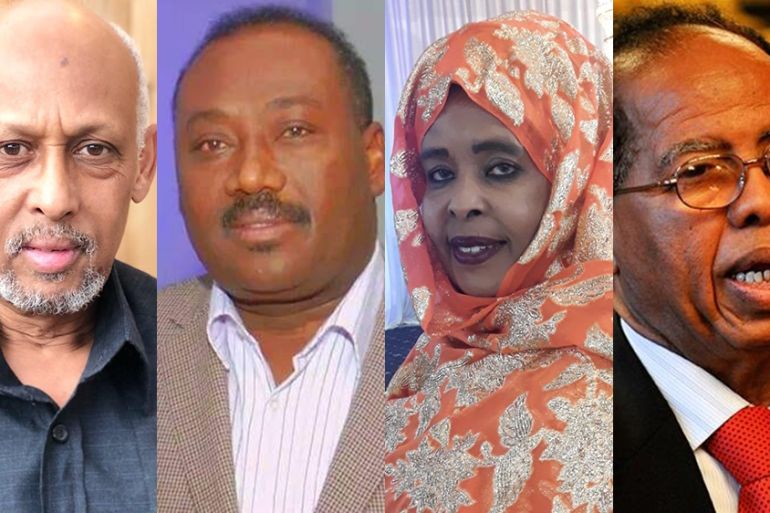Coronavirus exacts heavy toll on UK’s Somali community
A 13-year-old boy from London and a former Somali prime minister among those who have lost their lives too soon.

London, United Kingdom – Hanna Ali, a volunteer who works with several community organisations, has been exceptionally busy since the epidemic began in the United Kingdom.
Much of her time is spent sharing information in Somali in the hope that every family gets access to life-saving messages.
Keep reading
list of 3 itemsUK economy crumbling as coronavirus deaths mount
UK coronavirus death toll 40 percent higher than reported
“There are now almost daily announcements of Somali lives lost or hospitalised due to COVID-19,” she told Al Jazeera.
Late last month, her worst fears were realised when the virus struck her father, Abdirahman Ali Arkow, a healthy man in his 60s with no underlying illness.
“I didn’t expect this to hit home quite like this,” said Ali, the artistic director of Kayd Somali Arts and Culture in London.
“What started as a simple dry cough turned instead to 20 days in hospital and being ventilated.”
Her father died on April 15 and was buried 10 days later. As the UK continues to implement strict social distancing measures, she was unable to be with her father in his final days and his funeral was a muted affair.
“This has come as a huge shock to the entire family,” she said. “The inability to say goodbye both in the hospital and during his funeral has been nothing short of a nightmare.”
The virus has claimed the lives of Somalis in Britain from all ages and backgrounds – from 13-year-old Ismail Mohamed Abdulwahab and former Somali Prime Minister Nur Hassan Hussein, 83, to popular musician Ahmed Ismail Hussein Hudeidi, 91
The UK’s official hospital death toll from the coronavirus stands at more than 20,000, but the real figure is believed to be much higher.
Mohamed Abdulkadir Biriq, 59, a celebrated former footballer who lived in the UK since 1992, is among the COVID-19 victims. He had diabetes and was admitted to hospital after contracting the virus.
“It was devastating and painful but that was God’s plan and we had to accept it,” said his brother, Ibrahim Mohamed Biriq.
People used to call him “legend” and revered his football career in the 1970s in Somalia. He trained and supported young people in the diaspora.
But due to the lockdown, his funeral could only be attended by 11 people including seven of his eight children.
When 60-year-old Khadija Mohamed Ali developed symptoms, she resisted calling the hospital in the beginning “because she was worried that she would die alone in the hospital without her family by her side,” said her sister, Miksi Mohamed Ali.
She had a heart condition and within seven days, her condition deteriorated.
By the time her family called the ambulance, it was too late. She died at home in the presence of her relatives.
While the reasons why the Somali community appear to have been badly affected are complex, cultural and socioeconomic inequality are among the factors, according to local community organisations.
“The structure of Somali families in most households has multiple generations living under one roof,” said Dr Samira Hassan, a founding member of the British Somali Medical Association (BSMA).
“Many live in deprived communities making distancing practically impossible within the household.”
BSMA has been providing vital information to the community “to tackle widespread misinformation and fear” caused by COVID-19.
As yet, there are no reliable figures about the ethnic backgrounds of coronavirus victims. But there is growing evidence that coronavirus disproportionately affects people from ethnic minorities.
After calls led by Chair of the British Medical Association Chaand Nagpaul, the government has launched a formal review into why this could be happening. The opposition Labour Party has also announced an investigation.
According to the 2011 census, there were about 108,000 Somalia-born UK residents.
Last week, 27 Somali-led organisations in London released a joint statement highlighting the challenges the Somali community were facing in the wake of the coronavirus epidemic, and called on authorities for a response.
“We came together united as one to come up with immediate action plan,” said Abdi Musse, director of Friends of the Horn Foundation.
“We are also working on collecting our own statistics on the number of COVID-19 deaths among the Somali community,” said Musse.